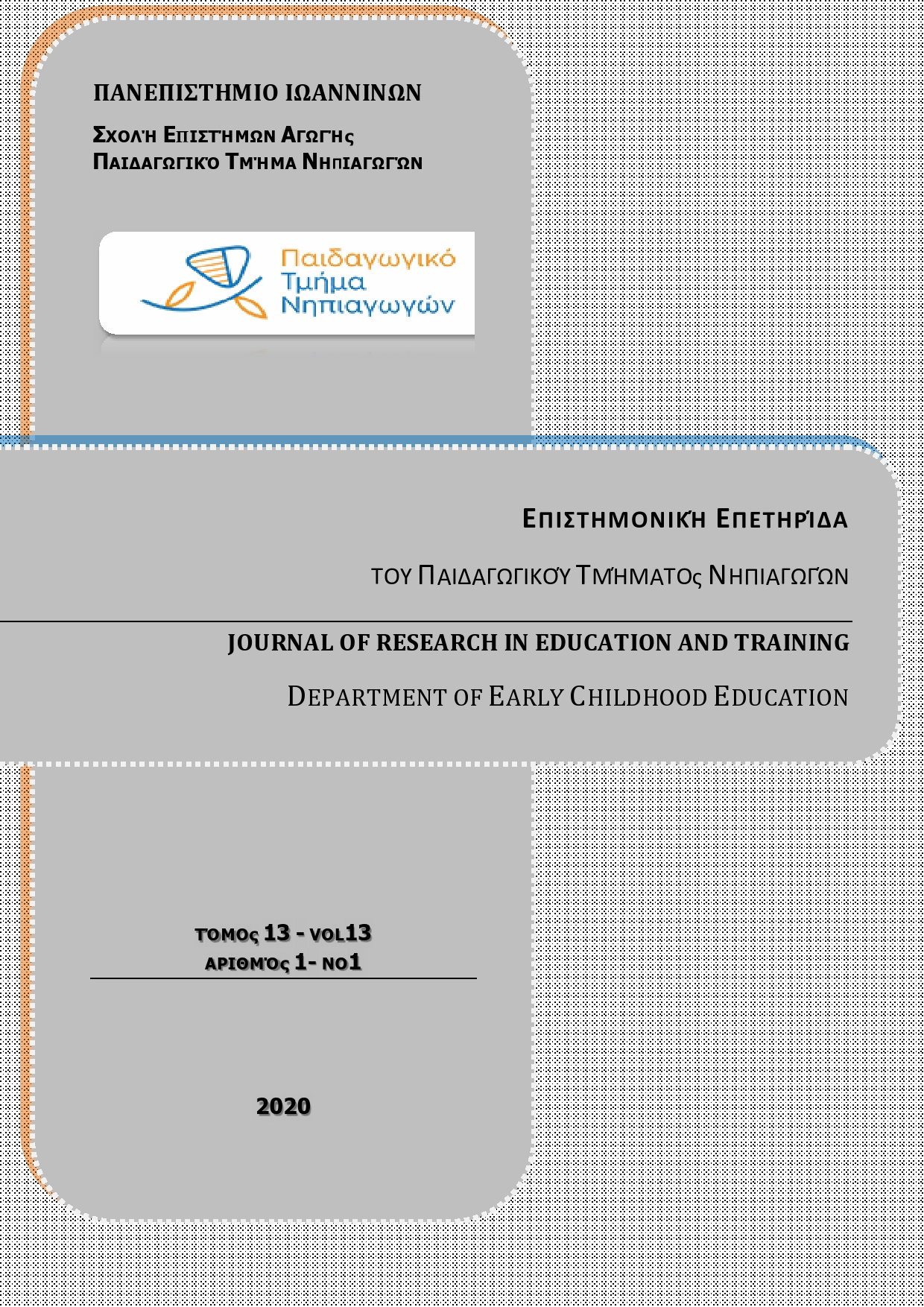The reformation of kindergarten΄s space and cooperation possibility, from toddlers, in water cycle subject

Abstract
The aim of this study is to investigate toddler’s ability to reform kindergarten’s space implementing cooperative activities pertaining to the physical sciences, specifically to the water circle phenomenon. We chose action research as research method, because we explored classroom΄s environment and its subjects that are in constant interaction among them. In this research, 91 toddlers took part from 4 kindergartens΄classes in Piraeus region. We used the following methodological tools and techniques: observation protocol; questionnaire for the teachers (after the research intervention); toddlers’ interview (before and after the research intervention); knowledge test for toddlers about the water circle (pre test and post test); teachers’ evaluation on toddlers’ work (during and after their activities in science). In this paper, we present the analysis and the results of 91 toddlers’ interview, about toddlers’ perceived ability to reform and adjust classroom΄s space and equipment, how they can sit and stand during the educational procedure, and the communication and the relation among them and their teacher. Also, they expressed which was their favorite activity of the water circle subject. The results of the interview showed that the experimental classes had the flexibility and also liked a lot to reform the space of their classroom. Indeed, they could remove the equipment and the furniture, during their free time and also science lesson. They had also the ability to stay and sit as they pleased. The team dynamics strengthened the bonds and relations among all the team members. In addition, the toddlers from the experimental classes remembered many more activities pertaining to the water circle. Finally, the activities they chose as their favorite ones were related to body movement and semantic mutations related to space.
Article Details
- How to Cite
-
Klimanoglou, S., & Germanos, D. (2020). The reformation of kindergarten΄s space and cooperation possibility, from toddlers, in water cycle subject. Journal of Research in Education and Training, 13(1), 105–149. https://doi.org/10.12681/jret.21131
- Issue
- Vol. 13 No. 1 (2020)
- Section
- Articles

This work is licensed under a Creative Commons Attribution-NonCommercial-ShareAlike 4.0 International License.
Authors who publish with this journal agree to the following terms:
- Authors retain copyright and grant the journal right of first publication with the work simultaneously licensed under a Creative Commons Attribution Non-Commercial License that allows others to share the work with an acknowledgement of the work's authorship and initial publication in this journal.
- Authors are able to enter into separate, additional contractual arrangements for the non-exclusive distribution of the journal's published version of the work (e.g. post it to an institutional repository or publish it in a book), with an acknowledgement of its initial publication in this journal.
- Authors are permitted and encouraged to post their work online (preferably in institutional repositories or on their website) prior to and during the submission process, as it can lead to productive exchanges, as well as earlier and greater citation of published work (See The Effect of Open Access).


